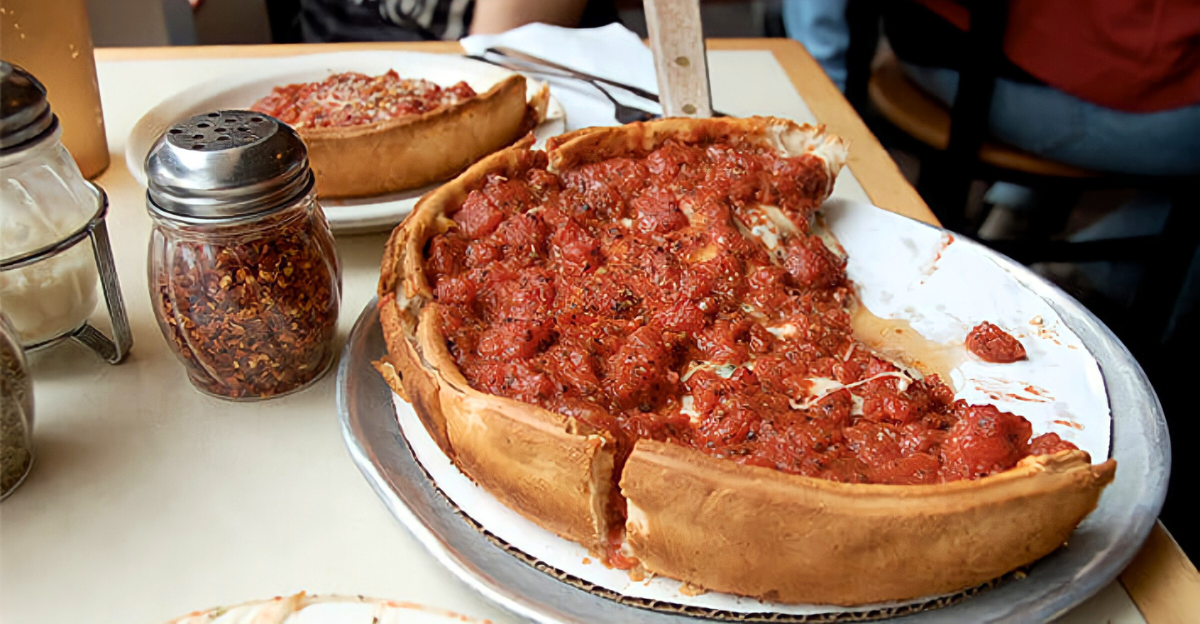
Pizza is one of those foods that never really goes out of style. From its beginnings in Naples to its spread across the U.S. in the late 1800s, it has always found new ways to stay popular.
But not every version of pizza has kept up. Some once-loved styles are now harder to find, pushed aside by changing tastes and bigger trends.
They’re not gone completely, but they don’t show up on menus the way they used to. Here are ten types of pizza that were once everywhere but now seem to be slowly disappearing.
1. Sicilian Pizza
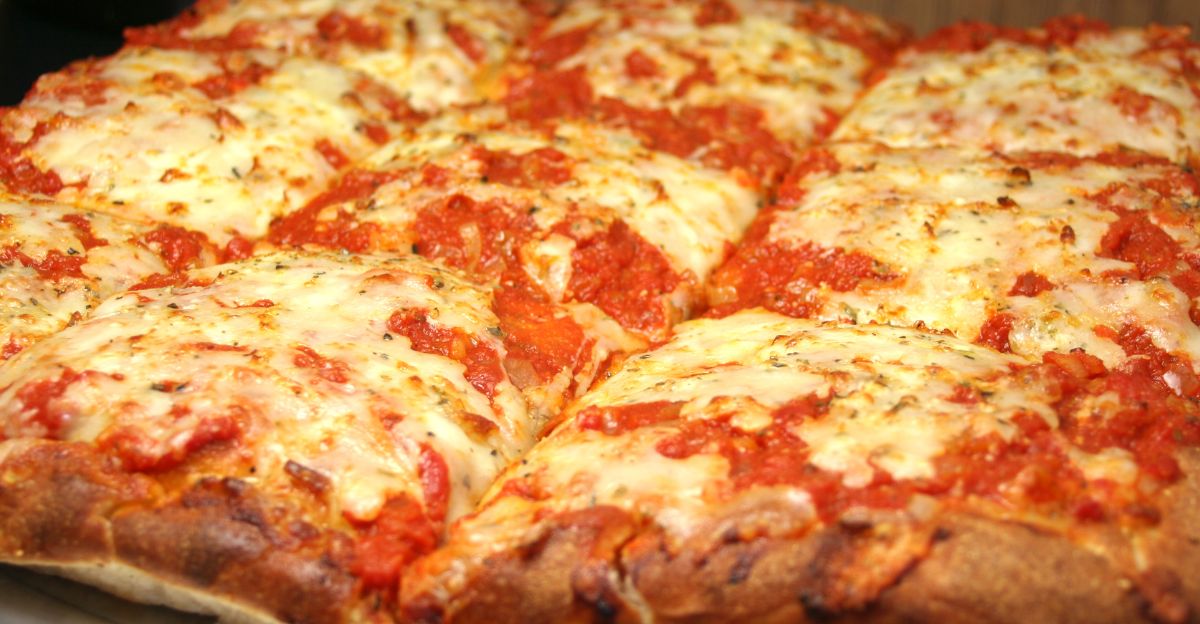
Ask for Sicilian pizza in the U.S., and you’ll likely get a square slice with a thick, cheesy crust. But the original version from Sicily, called sfincione, was quite different.
It had a soft, spongy base topped with tomato, breadcrumbs, and strong cheese. Once made for holidays and celebrations, it has become harder to find in its authentic form.
2. French Bread Pizza
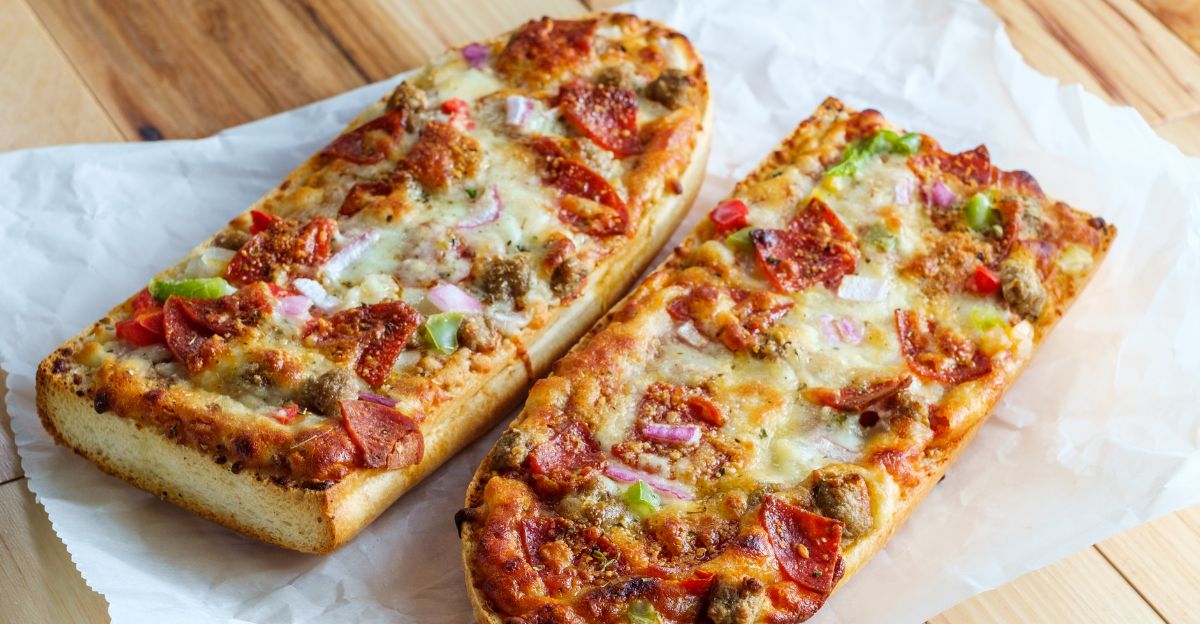
If you grew up in the 80s or 90s, chances are you remember French bread pizza. Whether frozen from the store or homemade, it was a crunchy, cheesy snack that felt fun and easy.
It had its moment, especially after Stouffer’s made it popular. These days, though, it’s mostly a memory. Fewer stores carry it, and it’s not nearly as common.
3. St. Louis Style Pizza

St. Louis-style pizza is thin, crispy, and cut into squares. What really sets it apart is the use of Provel cheese, a blend with a distinct flavor.
It was a local favorite for decades, especially at Imo’s Pizza. But outside St. Louis, it hasn’t caught on in the same way. National surveys show it ranks low compared to other styles.
4. California Style Pizza

California-style pizza was once seen as fresh and creative, topped with things like barbecue chicken, arugula, or avocado.
It became well-known thanks to California Pizza Kitchen. But in recent years, the chain closed many of its restaurants, and the style lost steam. Fewer people choose it today, and surveys suggest it’s not as loved as it used to be.
5. Colorado Style Pizza

Colorado’s take on pizza, often called “mountain pie,” is thick, heavy, and baked with honey in the crust. Served with extra honey on the side, it built a loyal fanbase at Beau Jo’s.
While it still has a presence in Colorado, it hasn’t spread much outside the state. Even at home, other styles now rank higher in popularity.
6. Italian Tomato Pie

Tomato pie came before many modern pizzas. It’s made with a thick crust, tomato sauce, and little else, usually served cool and sometimes sprinkled with cheese.
Found in cities like Philadelphia and Utica, it was once very common in Italian bakeries. Now, it’s more of a specialty item, with many shops moving on to standard pizza recipes.
7. White Pizza
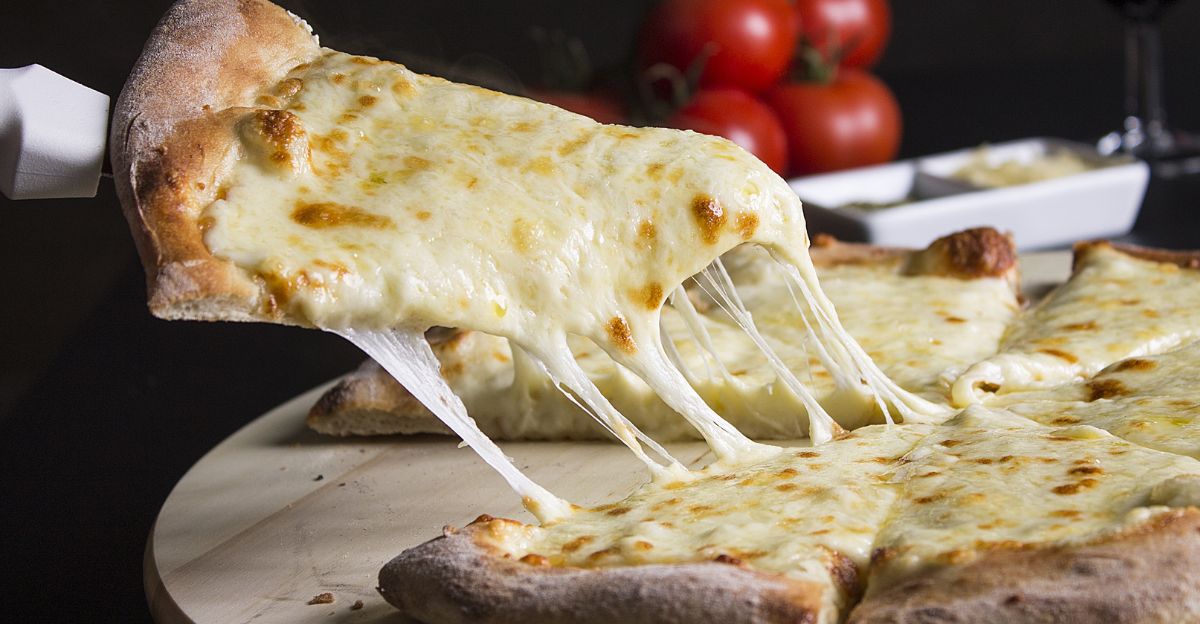
White pizza skips the tomato sauce and uses cheese or cream-based toppings instead, often ricotta or Alfredo. It was trendy in the 1980s when new “gourmet” pizza styles were taking off.
These days, it’s less popular. Some people love its simplicity, but others don’t consider it “real” pizza. The heavy cheese also keeps it from feeling like a healthier choice.
8. Buffalo Style Pizza
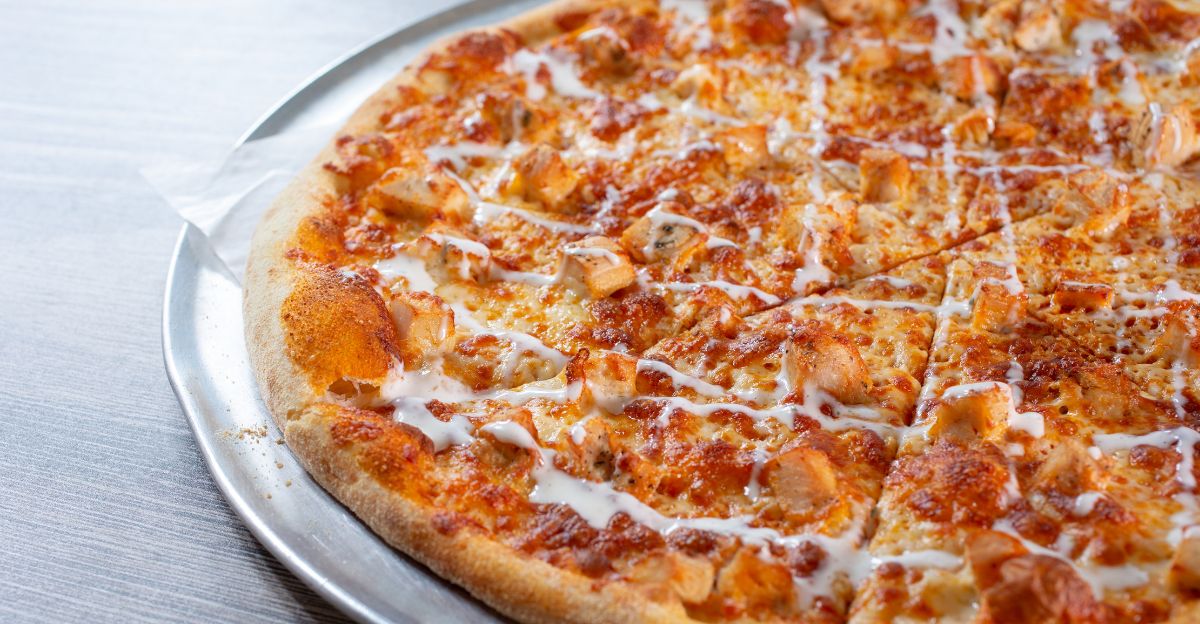
Buffalo-style pizza sits somewhere between thick and thin crust. It’s topped with lots of mozzarella and pepperoni that curls into little cups when baked.
Locals in Buffalo love it, but it never spread nationally. Overshadowed by New York pizza, it remains a regional specialty. Outside of western New York, it’s tough to find on most menus.
9. Greek Pizza
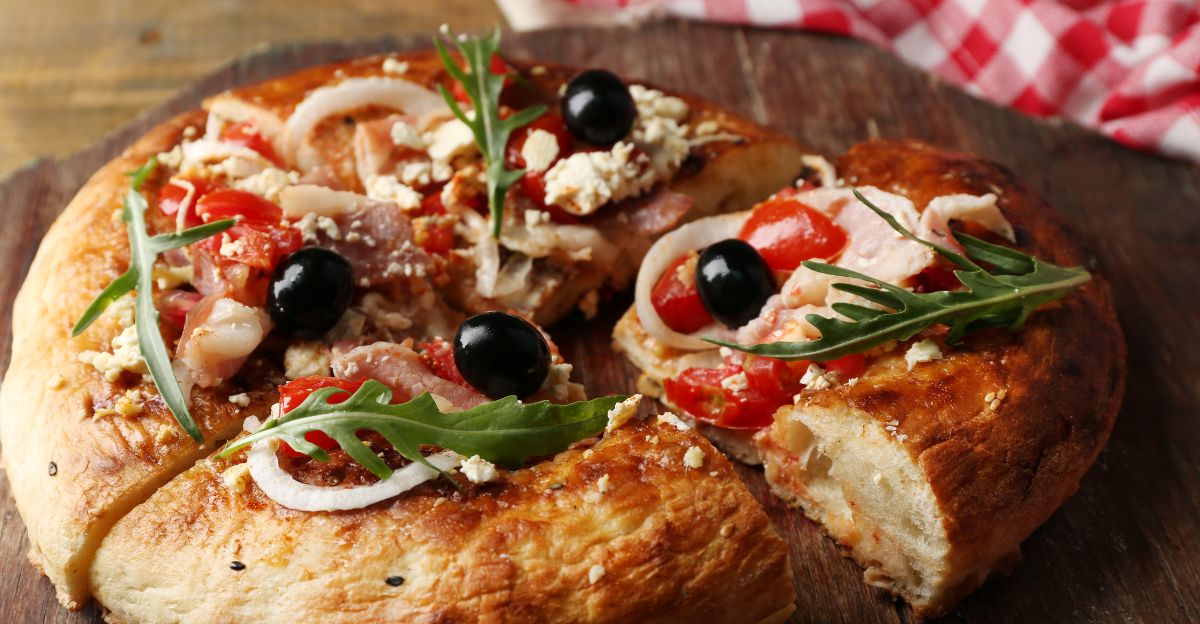
Greek pizza became popular in New England, often made in Greek-owned restaurants. It’s baked in shallow pans, with a chewy, oily crust and lots of toppings.
While it had a strong run, thinner and crispier pizzas are now more in demand. Younger diners especially tend to skip the heavier, greasier versions, leaving Greek pizza less common than before.
10. Bar Pizza
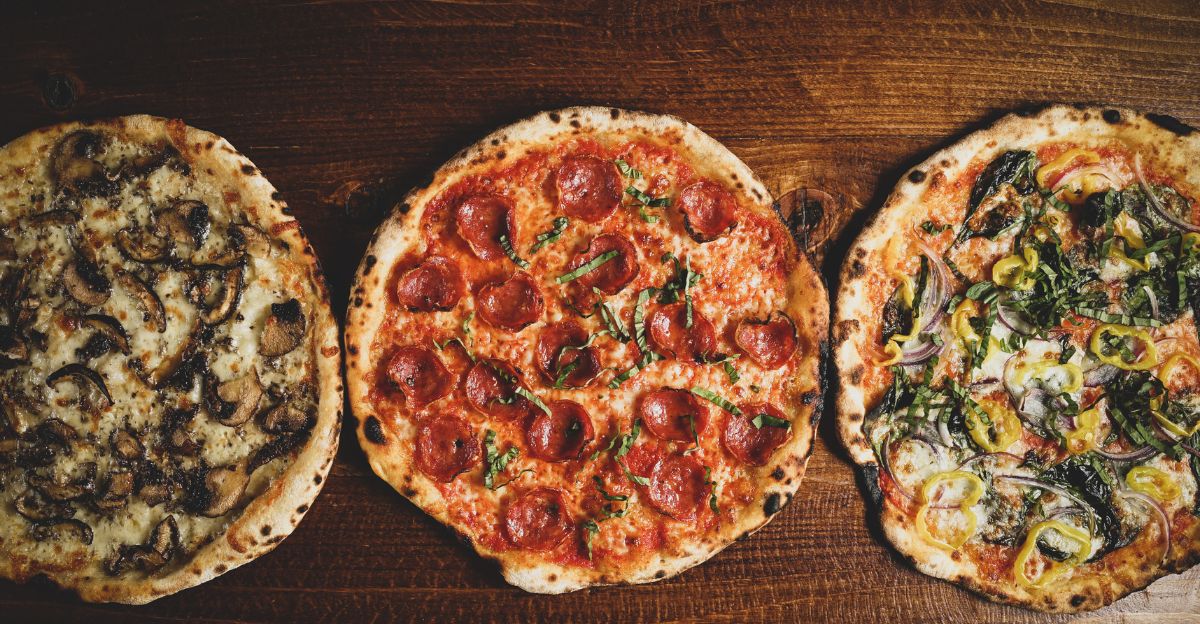
Bar pizza, especially known around Massachusetts, is thin, crispy, and baked until the cheese caramelizes at the edges.
Served in small pans, it was a classic tavern food. But bar pizza is harder to find as old bars and neighborhood pubs close down. It still has a following, but mostly in a few local spots.
Why Styles Fade

So why do some pizzas disappear while others last? Sometimes it’s about health trends. Sometimes it’s about convenience.
And often it comes down to what big chains decide to sell. Styles that don’t spread widely or can’t be made on a large scale usually end up fading from the bigger pizza picture.
Chains Shaped Pizza

Chains like Pizza Hut, Domino’s, and Papa John’s helped decide which pizzas became mainstream. Their menus focused on styles that were easy to make, easy to deliver, and widely liked.
More unusual or local varieties didn’t always fit that model. As a result, many once-popular pizzas lost ground to simpler, more familiar choices.
Regional Loyalty
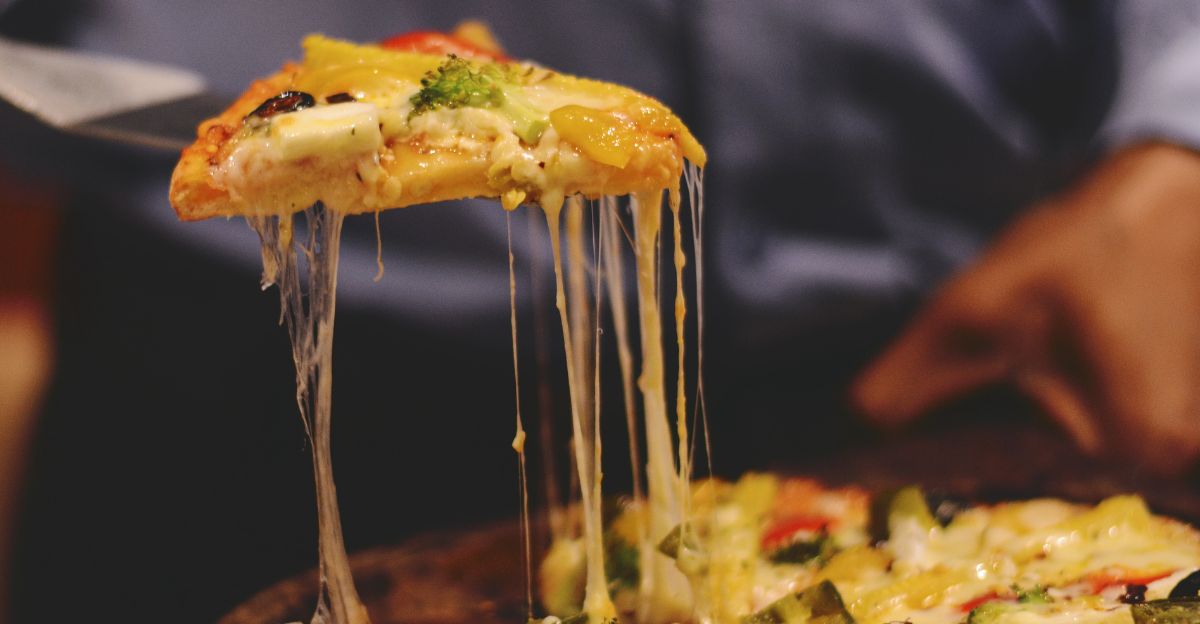
For many cities, pizza is about local pride. That’s why Buffalo, St. Louis, and other regional styles still exist, even if they aren’t popular nationwide.
People in those places grew up with those pizzas and keep them alive. Outside those areas, though, the chances of finding them drop off pretty fast.
Health and Habits
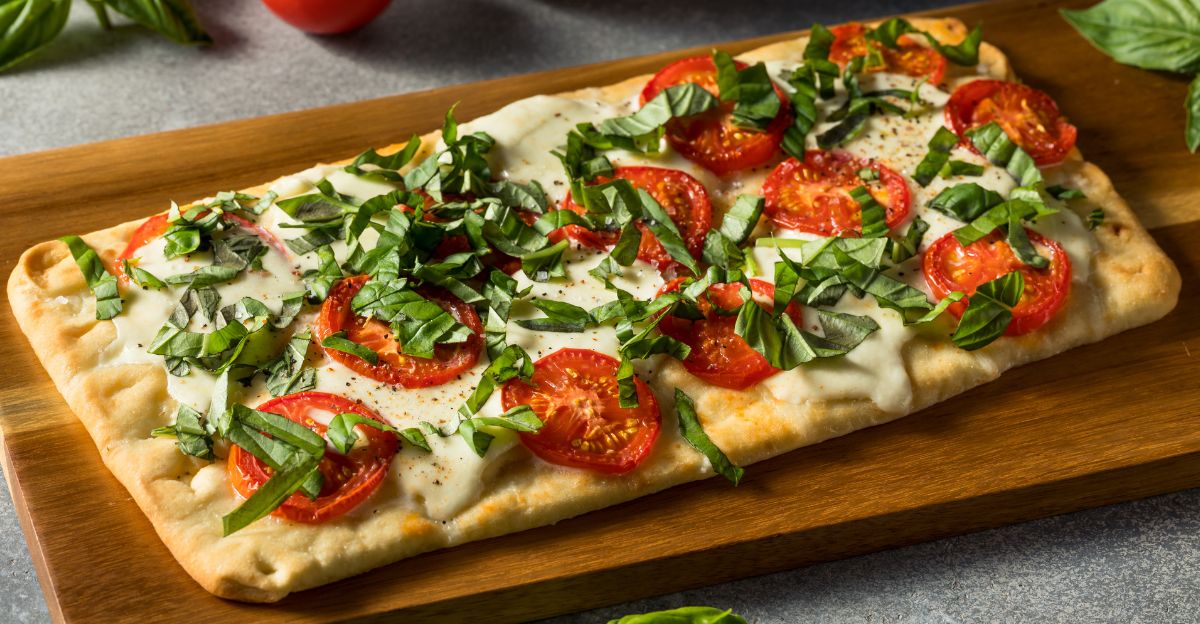
As eating habits shifted, so did pizza orders. Heavy, oily pizzas like French bread or Greek styles felt less appealing in an era of lighter meals.
Customers today often look for thin-crust, gluten-free, or vegetable-based toppings. While pizza itself isn’t going anywhere, certain older styles no longer match what people want most.
The Nostalgia Effect

Even if they’re less common now, these pizzas still hold a special place in memory. For some, French bread pizza brings back childhood.
For others, tomato pie reminds them of family traditions. Nostalgia can bring dishes back, especially when people share them online or when restaurants experiment with throwback menus.
Could They Return?

Food trends run in cycles. What’s “out” today could be back in a few years. Detroit-style pizza, for example, went from forgotten to hugely popular again.
All it takes is a chef, a restaurant, or even a viral video to spark new interest in an old pizza style. Some of these could make a comeback.
Pizza Keeps Evolving

Pizza continues to change with the times. Plant-based cheeses, gluten-free crusts, and global flavors are shaping what people eat today.
While older styles fade, new ones take their place. The constant mix of tradition and innovation is what keeps pizza fresh, even if not every type survives the shift.
More Than Food

Losing these pizzas isn’t just about taste. It’s about culture. Each style tells the story of the people and communities who created it.
Even if you don’t see them on menus much anymore, remembering them shows just how many ways people have reimagined pizza over the years.
The Last Slice

Pizza never really disappears. It just changes form. While Sicilian sfincione, Greek pies, or French bread pizzas might not be as common now, they helped shape the way we eat today.
Some may stay local, some may fade, and others may return. Either way, pizza will always find a way to adapt and stay loved.